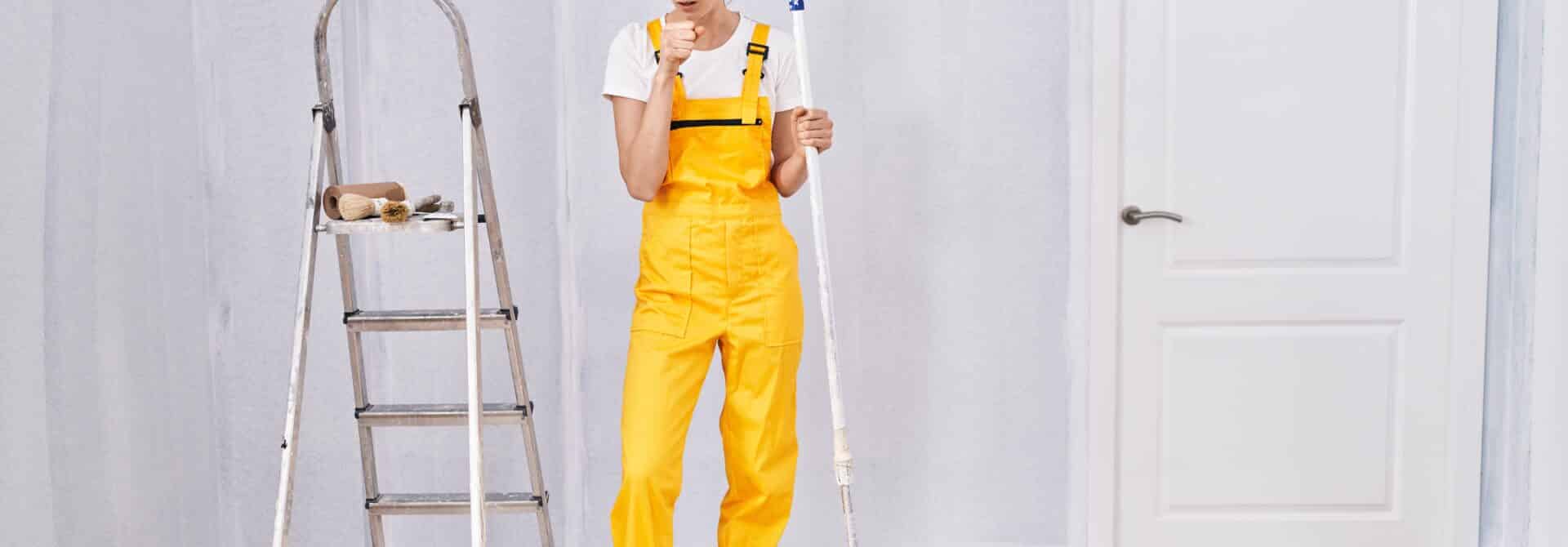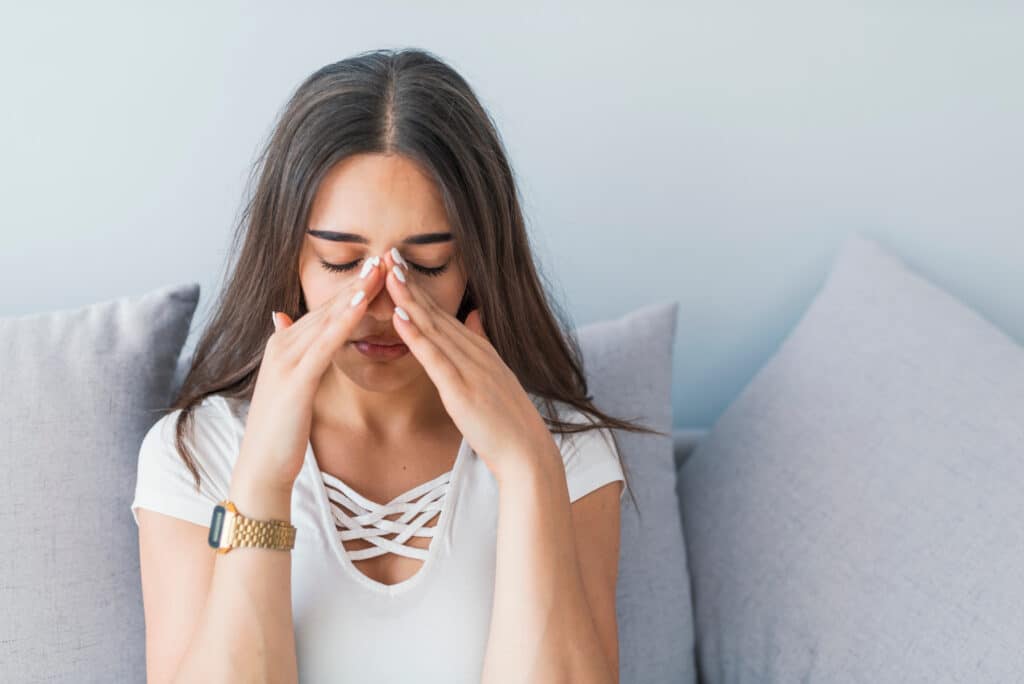
Can Interior Wall Paint Trigger Your Allergies?
Are you thinking about changing the interior paint of your home? Do you suffer from allergies? In the US alone, 24 million people suffer from environmental allergies, which include paint. So, if you answered yes to both questions, you need to understand that you may have a paint allergy and should be prepared for how it may affect you.
Can Paint Cause Allergies?
There are several chemicals used in paint during its manufacture. The result is paint that adheres to your wall and creates the beautiful look you want. However, those same chemicals do not always stay in the paint. They can be released into the air for many years after applying the paint to your walls. So, yes, paint can cause allergies. Many people are sensitive or have paint allergy to the fumes released by wet paint and some can be affected by chemical-rich paints or retextured walls years later.
You can be allergic to almost any type of paint but the most common ones are gloss paints! It’s best to go with eco-friendly options when it comes to painting.
Signs of Allergies to Paint
The release of these chemicals into the air can trigger your allergies. For instance, when you walk into a freshly painted room and immediately feel a tickle in your throat or nose, this indicates the paint fumes triggering your allergies. Some other common signs of allergies to paint include sore throat, runny nose, cough, nasal congestion, watery eyes, and even rashes.
More seriously is inhaling paint fumes. Exposure to these vapour and VOCs from paint can result in serious allergic reactions! Symptoms of this include headaches, watery eyes, dizziness, and even breathing problems. If you are experiencing these, please seek medical attention immediately.
The same thing can happen months down the road – or even years. If you are thinking about painting your home on your own, you may want to think twice. Professional painters know which paints to use to have the least amount of fumes present, both immediately and in the future.

Long-Term Effects of Paint Fumes and Allergies
Having a paint allergy or being hypersensitive to its fumes for a long period can cause long-term health issues. These include:
Respiratory Problems: Prolonged exposure to paint fumes can lead to respiratory issues such as chronic coughing, wheezing, and difficulty breathing. This is especially concerning for individuals with pre-existing respiratory conditions like asthma.
Skin Irritation: Some paint chemicals can cause skin irritation and allergic reactions upon contact. Continued exposure may result in dermatitis, itching, redness, and swelling of the skin.
Eye Irritation: Paint fumes can also irritate the eyes, leading to redness, itching, watering, and discomfort. Prolonged exposure may contribute to more severe eye problems over time.
Headaches and Dizziness: Inhaling paint fumes for extended periods can trigger headaches, dizziness, nausea, and general discomfort. These symptoms can significantly impact daily life and productivity.
Neurological Effects: Some studies suggest that certain paint chemicals may have neurotoxic effects, potentially impacting cognitive function, mood, and overall neurological health.
It’s crucial to be aware of these long-term health risks associated with paint fumes and allergies, especially if you are frequently exposed to painting environments. Taking preventive measures and consulting with paint professionals can help minimize these risks and ensure a safer living or working environment.
DIY vs Professional Painting to Minimize Paint Allergy Risks
Another reason you should hire a professional – besides the polished, finished appearance – is because your paint allergy may not be able to handle the process. Professional painters have the necessary equipment needed to protect themselves from the fumes, which can be especially beneficial for allergy sufferers. All you have to do is make sure you avoid the room until the fumes are gone. As an allergy sufferer, you have to protect yourself from allergy triggers, including paint fumes. Discuss your allergy problems with your painter and let him help you choose the least harmful paint for your walls, ensuring a safer and more comfortable painting experience.
Moreover, professional painters are well-versed in proper ventilation techniques, ensuring that the air quality during and after the painting process is optimal. They also have access to low-VOC (Volatile Organic Compounds) paints, which emit fewer harmful fumes compared to traditional paints, further reducing the risk of triggering allergies.
Attempting DIY painting without the proper knowledge, equipment, and precautions can exacerbate allergy symptoms and pose health risks. Professionals not only ensure a high-quality paint job but also prioritize your health and well-being throughout the painting project.
How to Treat Your Paint Allergy
If you’re going the DIY route, be sure to choose allergy-friendly products. Wear a mask before entering your home and keep windows and doors open for better ventilation! Wear gloves and covering clothing and be sure to not make direct contact with the paint. According to Allergy Free: “In case of an allergic reaction, immediately leave the place for some fresh air and/or rinse irritated skin or eyes with water. If swelling occurs, apply cool compression and if you have an itchy throat, gargle with warm salt water to soothe it.”
Avoid Paint Allergy Triggers, Hire Paint Denver
Even if you suffer from allergies to paint, there is no reason why you should not have a beautiful, freshly painted home. You just have to take a few extra precautions and leave it to the pros! Contact Paint Denver today and talk with our experts.
